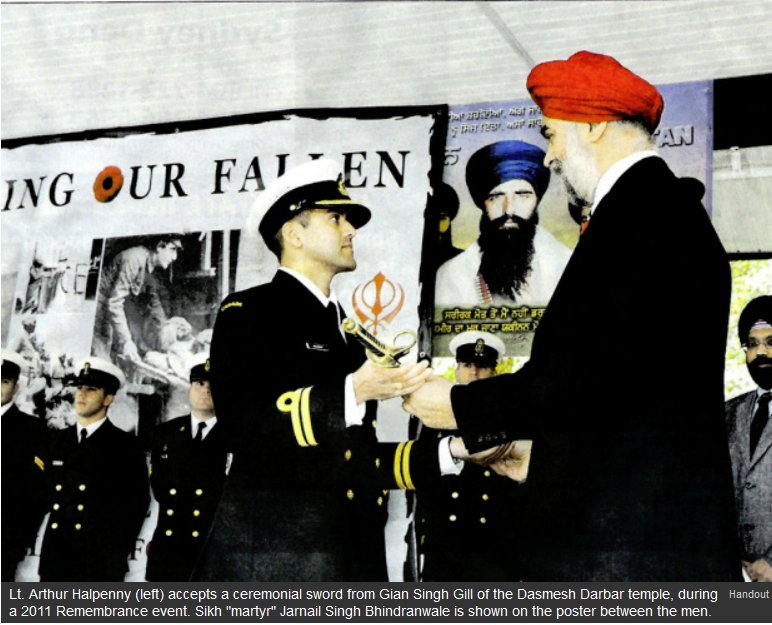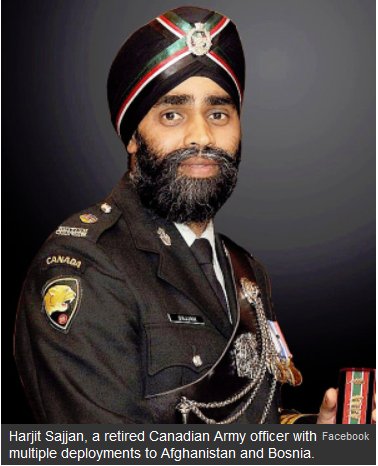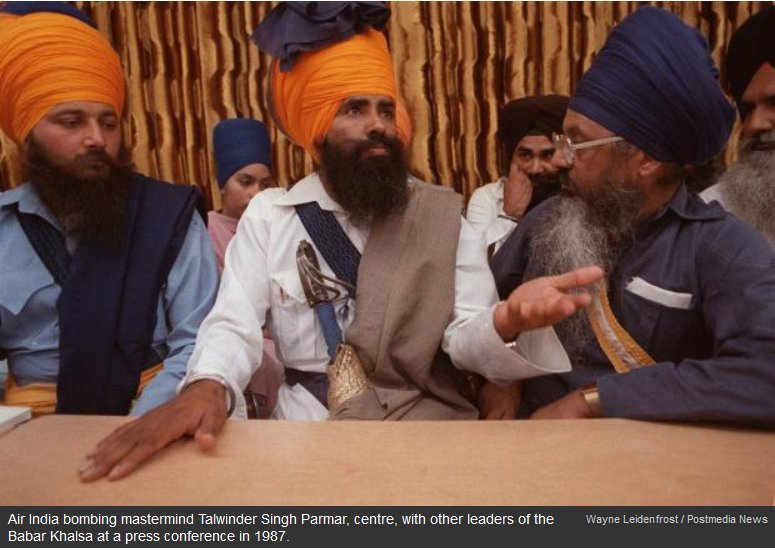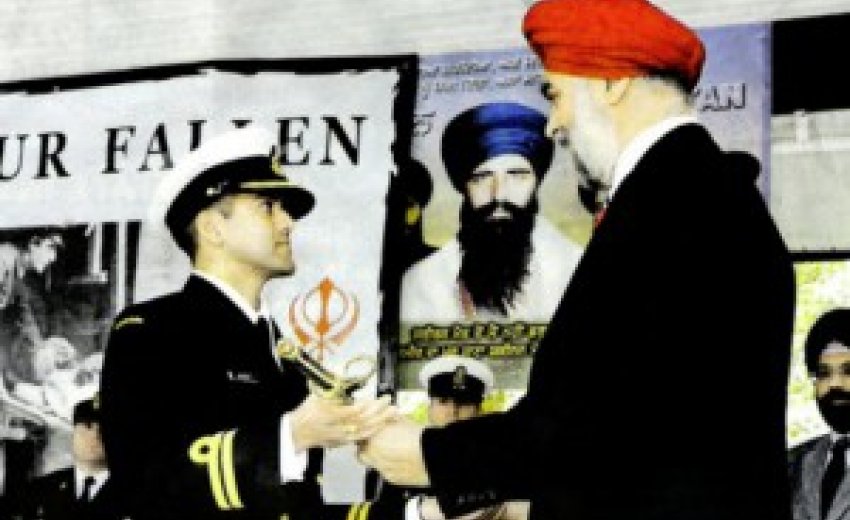
December 15, 2014: OTTAWA — Canada apologized to India in 2011 after a ministerial inquiry confirmed that military personnel had participated in a Remembrance Day event at a Surrey Sikh temple that “glorified terrorists.”
At the event, according to internal documents, the Punjabi-speaking officer now running to become a Liberal MP warned his colleagues not to let themselves be photographed near posters of “martyrs” of the movement to create an independent Sikh state called Khalistan out of the Punjab area in India.
 That officer, Lt.-Col. Harjit Singh Sajjan, was acclaimed Friday as Justin Trudeau’s Liberal candidate in Vancouver South and has been criticized in recent days by some critics of the Khalistan movement in Canada for attending the 2011 event.
That officer, Lt.-Col. Harjit Singh Sajjan, was acclaimed Friday as Justin Trudeau’s Liberal candidate in Vancouver South and has been criticized in recent days by some critics of the Khalistan movement in Canada for attending the 2011 event.
However the internal document show that Sajjan was ordered to attend the event.
Internal correspondence from 2012 indicates Prime Minister Stephen Harper acknowledged that government officials and MPs were playing with fire attending events like the Remembrance Day ceremony and the annual Vaisakhi parade in Surrey, where some floats have included posters of Sikh radicals.
The government “must adopt a much more rigorous process for screening event invitations,” Harper wrote to a Conservative MP who had complained about government representatives being compromised.
The revelation that Canada apologized to India, which according to one expert underscores a risk of trying to win support in immigrant communities, was contained in a Dec. 8, 2011 email from Harper’s office.
 It was in response to complaints from some Punjabi-Canadians that religious fundamentalists would hijack a solemn day to honour the sacrifices of Canadian soldiers.
It was in response to complaints from some Punjabi-Canadians that religious fundamentalists would hijack a solemn day to honour the sacrifices of Canadian soldiers.
“Canadian Armed Forces members were invited to attend a Remembrance Day event; this was not expected,” wrote Katherine Coutinho, then a communications officer at Harper’s regional office in Vancouver.
She added that Gen. Walter Natynczyk, then chief of defence staff, “has apologized to the Indian High Commissioner.”
National Defence has continued to provide vehicles and personnel for the Vaisakhi parade, which draws more than 200,000 people, after being assured by organizers they’d be vigilant in avoiding future embarrassments, according to an internal document dated Aug. 7, 2013.
That document, from Defence Minister Rob Nicholson’s office, said such events are important to help find Indo-Canadian recruits and ensure Canada’s military is “inclusive.”
The 2011 Remembrance Day event, hosted by the Dasmesh Darbar temple, was intended “to recognize the sacrifices of Canada’s soldiers,” according to a report at the time in The Vancouver Province newspaper.
The armed forces contingent appeared in front of a giant “Honouring our Fallen” poster accompanied by photographs of Sikh soldiers during the two world wars.
But nearby was a large poster of prominent Sikh militants who died during the Indian army’s raid on the Golden Temple in Amritsar in 1984. A picture of the ceremony with that in the background was published in The Province.
Wearing a blue turban in the poster was Jarnail Singh Bhindranwale, the leader of the separatist Sikh militants who died during the Amritsar raid.
Another militant whose poster is featured to this day in the temple, but which was not captured in photographs sent to The Sun, is the late Talwinder Singh Parmar. Parmar was the B.C.-based mastermind behind the 1985 Air India terrorist bombing that was conducted in retaliation for the Golden Temple raid.

Temple President Davinder Singh Grewal, who confirmed that his temple has long displayed a poster honouring Parmar, rejected on Friday the notion that the posters at the 2011 event were glorifying terrorists.
“They are freedom fighters,” he said, adding Parmar was never convicted before he was killed in India in 1992.
However, B.C. Supreme Court Justice Bruce Josephson, in a 2005 acquittal of two Sikh leaders charged in the Air India bombing, noted that both the Crown and defence accepted that Parmar was the plot mastermind.
At the time of the temple event, Sajjan had just been appointed commander of the reserve B.C. Regiment. Sajjan, a former Vancouver policeman, was decorated for achievements during three tours as a soldier in Afghanistan, was also featured as a role model in the Conservative government’s “Welcome to Canada” handbook for new immigrants.
Sajjan confirmed in an interview that he attended the event, but said it was no coincidence that photographers didn’t capture him near the posters. “I did not take part in those pictures because I didn’t think it was appropriate.”
Documents from Nicholson’s office make it clear that Sajjan was under orders to attend the event, and that he warned his superior officer after arrival that his men shouldn’t appear near the militant posters.
Sajjan also advised his colleagues to do the same, but that advice was rejected, said the the letter, which also cleared him of faulty decision-making.
